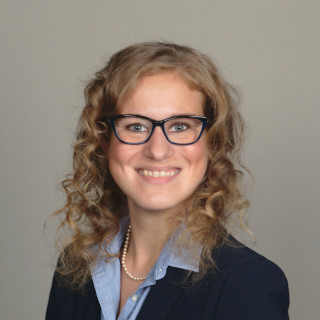I remember sitting in a large auditorium on my first day of medical school. Lecturers greeted us and shared that good days lay ahead of us in medicine. We would heal the sick. We would experience places most will never see — ORs, trauma bays, anatomy labs. We would contribute to medical literature and find new solutions to pervasive problems. We might make a diagnosis that everyone else had missed. We would make our families so proud.
When I began to immerse myself in the “real world” of clinical medicine two years later, my belief in the reliability of “good days” persisted. I felt wonder at the human body, and its ability to function despite the most egregious of physiologic insults. I found inspiration in the resiliency of my patients. I learned to broaden my differential diagnoses and found the specialty of psychiatry so immensely fulfilling that I could not wait to apply to residency. Good days were plentiful.
However, amid my medical school clerkship years, my idealized schema of medical practice soon came crashing down. In addition to the good days, I started to have bad days. I felt nervous to the point of shaking while presenting my first surgical patient on rounds, and everyone noticed. I felt physically and emotionally exhausted during hour 21 of a 24-hour ob/gyn shift. I cried in my car after a grueling night shift on my hospital’s trauma service. I observed residents engaged in a seemingly superhuman number of patient care tasks and sleep-deprived attending physicians trudging to the parking garage after busy call nights. To me, it was obvious that significant stressors existed, but on my clinical rotations, no one really spoke about them. I wondered, Do other people even have bad days in medicine? If so, what do they look like? And, why aren’t we talking about them?
Now, as a resident, I can appreciate the many barriers to honest conversations about bad days in medicine. These seem to include lack of time, competing patient care demands, avoidance of being perceived as jaded or burnt out, and a medical culture that fosters maladaptive perfectionism. In addition, the ingrained hierarchy of medicine can be a barrier to honest conversation due to fear of retaliation or shame. Another, less noted reason is the fear of creating a negative, unpleasant workroom environment for one’s colleagues. Patient care always comes first.
A final reason for the silence around bad days in medicine, I’ve found, is that no one’s bad days are the same — which can make bonding over shared experiences difficult. Not long ago, I experienced a particularly isolating situation: An agitated patient announcement was made, and because I was the closest to the area, I caught the brunt of the discontent of passersby whose routines had been interrupted. When the rest of my team arrived, the hallway atmosphere was back to baseline; my colleagues had no idea what I’d gone through. I thought about whether to process this experience aloud but decided against it; although stressful, it seemed to pale in comparison to other situations that occur in the hospital. I realized in the car on the way home that night that this experience was still at the forefront of my mind, brewing shame in silence, only remitting when I pounded the pavement on a therapeutic evening run.
In another instance, my bad day was caused by feelings of inadequacy: My patient lost their cool and started yelling, with coarse language, telling me to leave the room. I sought the help of my co-resident, who skillfully deescalated the situation in under a minute, when I could not. In medicine, learning happens through trial and error. It is understandable why we would not want to talk about our struggles — imperfection can feel like a crushing burden to carry in medical training when patients’ lives and well-being are in our hands.
And yet, I’m not convinced that silence is the right approach. In my day-to-day, I work with many medical students, and it’s this group in particular that deserves honest conversations. Though I find myself instinctively shielding my students from the negatives of my job — I don’t want them to incorrectly assume that I’m disenchanted with medicine — I also know that medical trainees are particularly prone to bad days, and that maintaining the facade of “no bad days” can have serious consequences. Research shows that the vast majority of medical residents, which my students will soon become, will make errors that impact patient care: A 2021 multispecialty survey found a 95% prevalence of self-perceived medical errors during residency. These errors were associated with guilt, remorse, and inadequacy, which were in turn associated with maladaptive coping strategies. The survey also noted that only 32% of residents participated in a debriefing session after the error was disclosed — even though discussion of adverse medical outcomes with colleagues and supervising physicians can be a critical part of a healthy coping process.
Errors are just one etiology of medical “bad days,” but the above studies highlight how integrating debriefing sessions into standard procedure — in other words, making a point to name and process bad days — could help mitigate the emotional fallout of the stressful situations we all experience in medicine. Recently, I had an opportunity to put my theory on the importance of debriefing to the test: A patient that both a medical student and I cared for died somewhat unexpectedly. It was the medical student’s first experience with the death of a patient, and it caught both of us off guard. We had been the last members of the care team in the patient’s room before they died. The patient was looking forward to discharge. It was jarring to walk into work just 10 hours later and find that the patient was no longer on our team list.
That day, I thought back to the codes I witnessed as a medical student. I remembered that my emotions would often brim to the surface after the final chest compression, but far too often there was no one with whom to translate them into words. I’d put my emotions into the pavement on my morning runs and the melodies I sang along to on drives home. I’d do crossword puzzles to temporarily forget that these emotions and situations existed. I’d imagine a medical culture in which, despite barriers, we were brutally honest with each other about our emotions and experiences.
With these experiences in mind, I knew that I needed to work to create this medical culture. It took a full week of misaligned schedules and competing demands on our time, but finally, the medical student and I were able to meet and process the loss of our patient. I shared with them how past patient deaths I’d witnessed were hard to cope with, even when I expected them to happen. I let them know that I’m not yet sure if patient deaths get easier, and that in a way, I hope they do not. Appreciating the humanity of each patient and fragility of human life seems like an integral part of medical practice I don’t want to lose (I am still an idealist at heart). I imparted to my student the importance of not dwelling on sadness, and of recognizing when our distress is prolonged; I explained that there is help available.
My conversation with the medical student in the wake of a bad day was neither comprehensive nor perfect — but it was a space to process something real. However messy and uncomfortable, I hope that we all might find such space to process the good days and bad days of medical practice.
How do you process the reality of medicine? Do you feel that you're doing enough? Share your thoughts in the comments!
Dr. Elizabeth Bruce is a former public school teacher and current PGY-2 psychiatry resident physician at the University of Michigan. Her wellness activities include running, crossword puzzles, traveling, and spending time with her spouse and shelter pets. Dr. Bruce is a 2022–2023 Doximity Op-Med Fellow.
Image by Alphavector / Shutterstock







